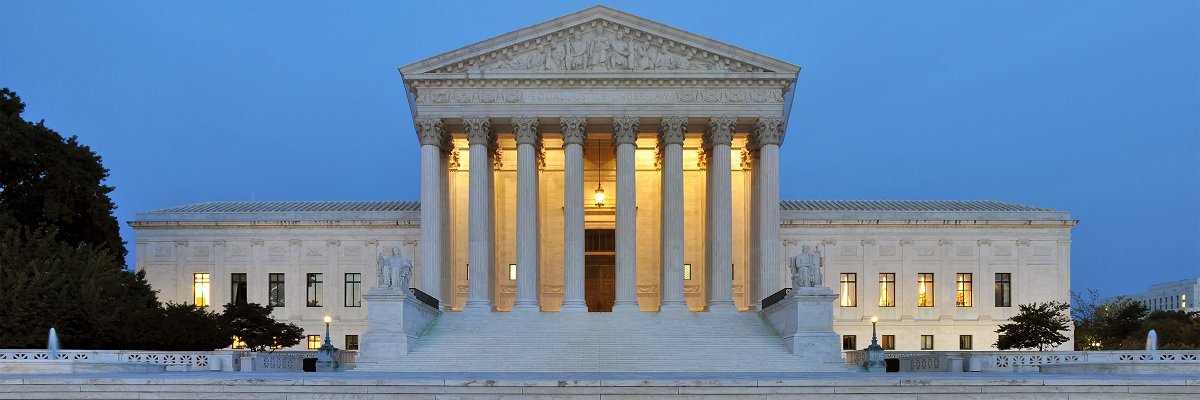Does your right to know which companies are receiving your tax dollars outweigh those companies’ rights to competitive secrets?
That’s the question at stake in an upcoming Supreme Court case set to be heard in April, and the result could either cement the public’s right to know or severely restrict the ability to track the flow of tax dollars into private companies.
“This could be a monumental FOIA case. It could be very good, or this could be disaster for FOIA, depending on what happens here,” said Jonathan Ellis, an investigative reporter with the Argus Leader.
It was his request for data on how much money companies were being reimbursed under the Supplemental Nutrition Assistance Program (SNAP) that set up the fight. SNAP, commonly known as food stamps, is a federal program administered by states that provides food assistance to low-income individuals. Ellis requested a copy of the database that tracked annual reimbursements to grocery stores and other companies that are part of the program.
In 2010, MuckRock successfully requested and published several years of this data from Massachusetts — and was then promptly threatened with fines and jail time. While the state ultimately dropped its attempts to get MuckRock to remove the data, requesters who sought the same data at the federal level were consistently rejected.
That is, until the Argus Leader filed its own request for the data in February of 2011, sued when the request was rejected, and won.
And then won again on appeal. And won yet again, as Ellis has exhaustively documented in a nineteen-part timeline of the case.
The next bullet on that timeline: Supreme Court arguments in mid-April, after a request from the Food Marketing Institute for the court to hear the case was granted.
“These people are just trying to hide the fact that they’re making tens of billions of dollars off the taxpayers,” said Ellis, regarding the lobbying groups that have mobilized to fight the release of the records after the USDA indicated it would no longer appeal the litigation.
If the decisions in favor of release are overturned, lack of access to this data will continue to hold back public spending accountability and nutrition research around the country — and provide corporations a powerful tool to keep public data proprietary in other cases.
The data at stake is annual reimbursements from the government to individual vendors under the program, but does not include any information about individual recipients. FMI claims this information should be protected by Exemption 4, which covers trade secrets and proprietary commercial information.
“What makes this case remarkable is the sheer scope of the effect that a ruling against the requester would have,” said Kel McClanahan, Esq., executive director of National Security Counselors. McClanahan has previously represented MuckRock in its successful suit for the Central Intelligence Agency’s CREST database. “A ruling for the requester would mean nothing more than a continuation of the status quo, where business information can only be withheld under Exemption (b)(4) upon a showing of competitive harm. But a ruling against the requester would turn Exemption (b)(4) into some sort of super-exemption, where the mere fact that business information had not previously been made public would suffice to withhold it.”
Already, commercial data is a challenging battleground for requesters, but in most cases understanding how tax dollars are being spent has been considered a key, and bipartisan, area of transparency.
“If businesses or industry groups could decide what is confidential information, that would essentially gut FOIA in regards to any industries doing business with government,” said Ellis. “All we’re asking for is a government record of what these business receive from taxpayers on an annual basis. That’s no different then us asking how much the mayor is making in a city. … It’s ridiculous to think that these records are somehow more sacred or privileged than what we take for granted on a daily basis for other government records.”
Jonathan Manes, director of the Civil Liberties and Transparency Clinic at the University at Buffalo School of Law, wrote in an email that an FMI win could ultimately exempt broad swaths of information currently disclosed.
“What’s at stake in this case is whether private companies’ dealings with the federal government will be further cloaked in secrecy,” said Ellis. “If we can’t get access to information submitted to government by private companies, then it will be difficult to know whether the government is regulating private sector effectively, or whether private vendors are carrying out public functions responsibly.”
He outlined three areas that could be particularly pared back and the potential cost to the public:
Information about clinical trials, scientific data, and other tests that are submitted to government agencies like the Environmental Protection Agency, the Food and Drug Administration, and the U.S. Department of Agriculture, and in order to demonstrate compliance with health and safety laws. Without this kind of information, the public can be kept in the dark about threats to health and safety, and it becomes very difficult for the public to determine whether the government is properly exercising its oversight functions.
Basic information about government contracts. In response to FOIA requests, the government often redacts the dollar amounts it pays for a contract as well as details about what services or products it is buying. If Exemption 4 is expanded, we can expect to learn even less about how the government is spending public funds.
The government increasingly buys technology from the private sector to carry out core government functions, including voting infrastructure, surveillance technology, database management/screening, benefits determinations, and many more. If Exemption 4 is expanded, it would allow privatized government functions to be carried out with even less transparency or accountability.
The court is set to take up the case in mid-April. Ellis said he’s hopeful.
“Not a single judge, with the exception of a summary judgement at the very beginning, has ever gone against us. If Congress had wanted to exempt these records, they could have added Exemption 3 language and they chose not too,” he said, referring to a recent legislation push to specifically exempt the information that ultimately failed.
Image by Joe Ravi via Wikimedia Commons and is licensed under CC BY-SA 3.0. This article has been updated to correct that the data in question was for annual reimbursements, not monthly.




